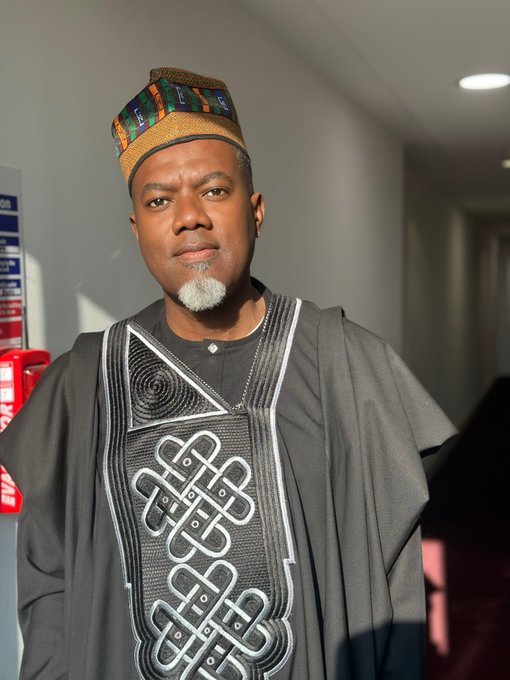Reno Omokri, a social commentator and former aide to ex-President Goodluck Jonathan, has stirred political waters by acknowledging Peter Obi as Nigeria’s leading opposition figure. His statement has set off a discussion about Obi’s influence and his impact on the country’s political landscape.
In a recent Facebook post, Omokri praised the former Anambra State governor for his resilience but also highlighted what he called Obi’s flaws. Despite being an outspoken critic of Obi, Omokri admitted that the former presidential candidate of the Labour Party has surpassed other opposition figures in stature.
“Peter Obi is currently the Number One opposition figure in Nigeria. Bar none,” Omokri wrote. “Anybody in any opposition party who thinks that he is bigger than Obi right now is ‘just deluded.’”
Opposition Politics Post-2023 Elections
The 2023 presidential election was one of Nigeria’s most hotly contested, with Obi emerging as a third-force candidate, running against President Bola Tinubu of the All Progressives Congress (APC) and former Vice President Atiku Abubakar of the People’s Democratic Party (PDP). Though Obi did not win, his campaign resonated deeply with younger Nigerians and the middle class, many of whom rallied behind the movement branded as “Obidients.”
Since the election, Obi has continued to position himself as a leading advocate for good governance. His rhetoric often emphasizes fixing Nigeria’s socioeconomic challenges, focusing on infrastructure, security, and economic empowerment. Unlike other opposition figures who appear to have faded into the background, Obi’s prominence has only grown, partly due to his continued engagement with Nigerians on social media and public events.
A New Chapter for Opposition Politics
Omokri argued that Obi’s political relevance has “retired” other opposition leaders, who have struggled to maintain visibility. “Some people in one or two opposition parties have already been retired by Obi, but they just don’t know it yet because their money is keeping them on political life support,” he said, suggesting that Obi’s ability to remain relatable to Nigerians sets him apart.
This statement could be seen as a subtle critique of politicians such as Atiku Abubakar, who has been a consistent feature in Nigerian presidential contests but now seems less influential than in previous years.
However, Omokri didn’t shy away from pointing out areas where Obi could improve. According to him, the Labour Party leader’s perceived regional bias and controversial statements could hinder his broader appeal. “If only he could be less Igbo-centric, appeal to his Obidients to use persuasive rather than abusive words, and admit, then apologise for his ‘Yes Daddy’ and ‘religious war’ comment against the Muslim Ummah, he would go far,” Omokri noted.
Background of Controversial Remarks
Omokri’s reference to Obi’s “Yes Daddy” comment alludes to a leaked audio clip from the 2023 campaign period. In the clip, Obi was purportedly heard addressing a religious leader in a manner critics claimed appealed to Christian voters at the expense of national unity. Obi has since dismissed the clip as manipulated, but it sparked a wave of criticism, especially from the Muslim community.
Similarly, accusations of being “Igbo-centric” have been a recurrent challenge for Obi, who has faced skepticism about his ability to unite a country as diverse as Nigeria.
Obi’s Future in Politics
Despite the hurdles, Obi’s resolve seems unshaken. In several interviews, he has reiterated that his ambition is not just to occupy Aso Rock but to see Nigeria realize its full potential. However, Obi has not ruled out the possibility of contesting again in 2027.
“I am more interested in seeing Nigeria work,” Obi once stated during a televised interview, leaving his options for another presidential bid open.
Political analysts believe Obi’s sustained relevance lies in his ability to challenge entrenched systems of governance, positioning himself as the voice of the ordinary Nigerian. His supporters, often dubbed “Obidients,” remain a force to reckon with, frequently using social media to amplify their advocacy for accountability and change.
Critics and Challenges
However, Obi’s journey has not been without detractors. Figures like Omokri have often accused the Obidient movement of intolerance, particularly on social media platforms. Omokri’s latest remarks suggest he believes Obi’s followers could adopt a less combative tone to gain broader acceptance.
“Appealing to logic and persuasion rather than insults will take him farther,” Omokri advised in his post.
Political observers note that as Obi continues to galvanize the opposition, he may need to broaden his message and address concerns about inclusivity to solidify his position as a national leader.
A Shifting Political Landscape
Omokri’s recognition of Obi’s status as Nigeria’s primary opposition figure reflects broader trends in the country’s politics. Traditional power structures within opposition parties, like the PDP, appear to be weakening. This shift leaves room for new figures like Obi to take the mantle, reshaping the way opposition politics is practiced in Nigeria.
Whether or not Obi can maintain this momentum until 2027 will depend on his ability to navigate the complexities of Nigerian politics while addressing his critics’ concerns. For now, though, even his detractors, like Reno Omokri, acknowledge his unparalleled influence in opposition circles.
In Omokri’s own words: “The man, Obi, is severely flawed, but I admire how he has trudged on despite the obstacles he faces.”
Peter Obi’s rise as Nigeria’s leading opposition figure underscores a significant shift in the country’s political dynamic. While challenges remain, his determination and relatability continue to resonate with a broad segment of Nigerians, keeping him at the forefront of the national conversation. His supporters see him as a beacon of hope, while even his critics grudgingly admit his staying power in a landscape that often chews up and spits out politicians.

